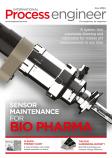Water expert delivers successful solution for wash application
In a recent project, a water expert successfully delivered a bespoke chemical solution to its longstanding client, a leading rPET pellet and flake manufacturer. Crucially, it was necessary for the rPET pellets to adhere to the minimum cleanliness requirements of recycled plastic packaging for the food industry. As such the company required a chemical solution with superior cleaning qualities to ensure compliance every time.
The manufacturer in question operates one of the UK’s largest and most technically advanced PET bottle reprocessing plants, handling in excess of 100,000 tonnes of PET packaging every year. It produces European Food Safety Authority approved food-grade rPET pellets for use by its customers in the manufacture of PET packaging and other products. To produce the highest quality pellet and flake products, it was necessary that the product adhere to strict maximum levels of organic cleanliness.
The current setup wouldn’t wash with food industry standards
The company currently uses two wash lines, both of which require a wash chemical, an antifoam and an alkalinity builder as part of the wash process. However, when using its previous wash chemical solution, pellets and flakes had to be regularly returned through the wash cycle when failing to comply with the maximum parts per million (ppm) level of organic contamination required by the food industry. In particular, a threshold of less than 300ppm was required.
The company also had an issue with foaming, despite the use of an antifoam, caused by turbulence within the system. This foaming would interfere with the level probes on the wash tanks, causing the system to drain and refresh prematurely and resulting in excessive usage of water, energy and chemicals.
Furthermore, the manufacturer was also concerned that there was a risk to its incumbent supply of wash plant chemicals. These were at the time being manufactured in mainland Europe – and the team was not aware of any alternative UK suppliers.
The wash application solution
Biochemica Water already had a long-standing relationship with the company and was providing it with a number of water treatment services. In particular, Biochemica was providing a chemical supply, service and consultancy service for the company’s wastewater treatment plant and steam raising plant as well as the supply of its Legionella management services.
The rPET manufacturer approached Biochemica with its current requirements and the water expert suggested a technical survey to identify potential areas of optimisation. Within its remit, Biochemica was tasked with providing a more effective chemical solution that was also cost efficient and would allow the company to increase flow rate through its wash lines as well as reducing the occurrence of foaming. It was also critical that less product would fail organics analysis, reducing the requirement to return it back through the wash process.
Biochemica, working with speciality chemicals manufacturer, designed a chemical that was based upon an existing product, known to work in an alkaline environment – and with superior cleaning capabilities.
The resultant solution, named Aquawash, was then trialled by the company and found to work well with the system, when exposed to low levels of turbulence. However, it was found to generate foaming at higher turbulence caused by the high-speed requirement of one of the company’s two wash lines. Adjustments were made to the chemical formulation to reduce foaming and the solution was tested again.
Anthony Stubbs, director of Water Treatment Services at Biochemica, says: “After extensive trialling, this second batch of Aquawash was found to work well. Although chemical usage levels were found to be the same as with the previous solution, economically, the company was also able to make savings by switching to Aquawash. Furthermore, the level of cleanliness and resultant organic ppm was crucially reduced to an average of less than 150ppm, meaning far less product was having to be returned and recycled through the system.
“Since the creation of this solution, we have also been able to assist another plastics recycling customer that had similar requirements and it could be further applied to any plastics recycling companies or businesses with hot wash cycles as part of their manufacturing processes."


















